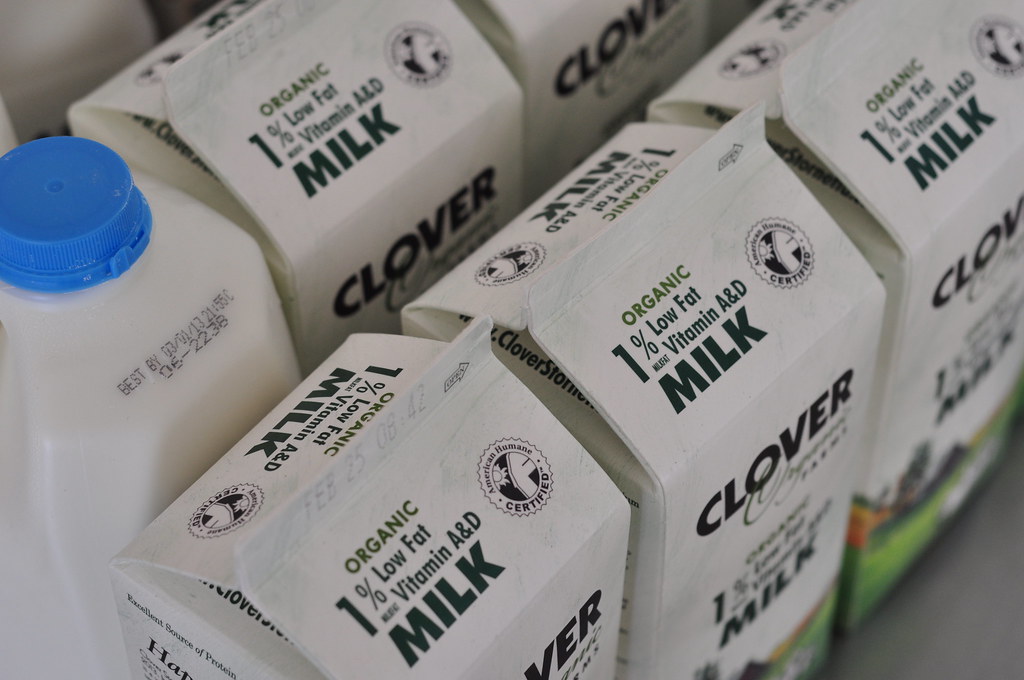Ways Processed foods can harm our Health

Introduction
The widespread consumption of processed foods poses significant risk to our health. Laden with artificial additives, excessive sugars, and unhealthy fats, these convenient options often lack essential nutrients while contributing to various health issues. From obesity and heart disease to metabolic disorders and digestive problems, the detrimental effects of processed foods are undeniable. Understanding the hidden dangers of these products is crucial for making informed dietary choices and prioritizing our long- term well- being. Just for your information, (the images on this blog are not processed foods).

How they Worsen our Mental Health?
1. Nutrient Deficiencies: processed foods often lack essential nutrients like vitamins, minerals, and antioxidants, which are crucial for brain health and mood regulation.
2. Imbalanced in brain chemistry: consumption of processed foods high in sugar and unhealthy fats can disrupt neurotransmitter function,
leading to mood swings and cognitive impairment.
3. Increased risk of depression: diets high in processed high in processed food has been linked to higher risk of depression and other mood
disorders due to their inflammatory and neurotoxic effects.
4. Poor gut health: processed foods can disrupt the balance of gut bacteria, leading to dysbiosis, inflammation, and a compromised gut- brain axis, which is linked to mental health issues.
5. Blood sugar fluctuations: processed foods with refined sugars can cause rapid spikes and crashes in blood sugar levels, leading to irritability, fatigue, and mood swings.
6. Addictive properties: processed foods, particularly those high in sugar and salt, can trigger addictive- like responses in the brain, leading to cravings and compulsive eating behavior.
7. Inflammation: processed foods often contain inflammatory ingredients, like refined sugars, unhealthy fats, and artificial additives, which can contribute to chronic inflammation in the body and the brain.
8. Cognitive decline: diets high in processed foods have been associated with cognitive and an increased risk of neurodegenerative diseases like Alzheimer’s disease.
9. Impaired memory function: consumption of processed foods has been linked to impaired memory function and decreased performance.
10. Mental fog: processed foods can lead to feelings of mental fog, difficulty concentrating, and decreased mental clarity.
11. Stress response: processed foods can dysregulate the body’s stress response system, leading to increased levels of stress hormones like cortisol, which can negatively impact mental health.
12. Low Mood: diets high in processed foods have been linked to lower overall mood, increased feelings of anxiety and depression.
13. Reduced brain plasticity: processed foods can impair brain plasticity, the brain’s ability to adapt and change in response to experience, which is essential for learning and memory.
14. Decreased resilience: consumption of processed foods may reduce resilience to stress and make individuals more susceptible to mental health challenges.
15. Poor stress coping mechanisms: processed foods can impair the body’s ability to cope with stress effectively, leading to heightened stress responses and maladaptive coping strategies.
16. Disruption of sleep patterns: processed foods, especially those high in sugar, and caffeine, can disrupt sleep patterns, leading to fatigue, irritability and worsen mental health.
17. Increased anxiety: diets high in processed foods has been associated with increased levels of anxiety and heightened stress responses.
18. Impaired executive function: consumption of processed foods can impair executive function, including decision- making, problem- solving, and impulse control.
19. Behavior problems: processed food high in artificial additives, and preservatives have been linked to an increased risk of behavioral problems, particularly in children.
20. Decreased motivation: diets high in processed foods may decrease motivation and lead to a lack of interest in activities, contributing to feelings of apathy and lethargy.
21. Social isolation: processed foods can contribute to poor dietary habits and unhealthy lifestyle choices, which may lead to social isolation and decreased social support, impacting mental health.
22. Increased risk of addiction: processed foods, particularly those high in sugar and unhealthy fats, can trigger addictive- like behaviors and increase the risk of food addiction, negatively impacting mental health.
23. Reduce quality of life: overall, diets high in processed foods can lead to a reduced quality of life, impairing mental well- being and overall happiness.
Processed foods harm mental health through nutrient deficiencies, disrupting neurotransmitter function, increasing depression risk, and promoting inflammation. Blood sugar fluctuations, addictive properties, and impaired cognition are common effects. They contribute to stress, anxiety, and decreased resilience, ultimately diminishing overall well- being and quality of life. Choosing whole foods supports mental health.

Chronic Diseases
- Obesity: are often high in in calories, sugar, and unhealthy fats, and low in fiber, leading to overeating and weight gain.
3. Cardiovascular disease: high levels of trans fat, saturated fats, sodium in processed foods contributes to elevated cholesterol levels, hypertension, and inflammation in the arteries.
4. Hypertension: processed foods are often high in sodium, which can lead to water retention and increased blood pressure.
5. non- alcoholic fatty disease: processed foods, especially those high in fructose and unhealthy fats, contribute to the accumulation of fat in the liver, leading to fatty liver disease.
6. Metabolic syndrome: processed foods contribute to insulin resistance, abdominal obesity, elevated blood sugar, and hypertension all components of metabolic syndrome.
7. Certain types of cancers: processed meats and food containing additives and preservatives are associated with an increased risks of cancers, including colorectal cancer.
8. Gastrointestinal disorders: processed foods lacking fiber and containing additives can disrupt gut microbiota and lead to gastrointestinal issues.
9. Neurological disorders: diets high in processed foods are associated with inflammation and oxidative stress, contributing to neurogenerative diseases.
10. Depression: processed foods lacking essential nutrients, high in sugar, and unhealthy fats can affect neurotransmitter function and contribute to mood disorders.
11. Anxiety disorders: consumption of processed foods may exacerbate anxiety due to their blood sugar levels and neurotransmitter function.
12. Autoimmune disease: processed foods containing inflammatory ingredients like refined sugars and unhealthy fats can trigger or exacerbate autoimmune responses.
13. Chronic inflammation: processed foods high in refined sugars, unhealthy fats, and additives can promote chronic inflammation, leading to various diseases.
14. Asthma: diets high in processed foods are associated with increased inflammation and oxidative stress, contributing to asthma exacerbations.
15. Allergies: processed foods may contain allergens and additives that trigger allergic reactions in susceptible individuals.
16. Migraines: certain additives in processed foods, such as MSG, can trigger migraines in sensitive individuals.
17. Gallstones: diets high in processed foods, particularly those high in unhealthy fats, can contribute to the formation of gallstones.
18. Kidney disease: processed foods high in sodium can contribute to kidney damage and impaired kidney function over time.
19. Osteoporosis: diets high in processed foods and low in nutrient- dense foods can contribute to bone loss and osteoporosis.
20. Dental Problems: processed foods high in sugar and refined carbohydrates can contribute to dental decay and cavities.
21. Skin disorders: diets high in processed foods and sugars can exacerbate inflammation and contribute to skin conditions like acne.
22. Compromised immune function: diets high in processed foods lacking essential nutrients can weaken the immune system, making individuals more susceptible to infections and illness.
Overall, the consumption of processed foods contributes to the development and exacerbation of various chronic diseases due to their nutrient- poor composition, high levels of unhealthy ingredients, and potential for promoting inflammation and oxidative stress in the body.

Impact on our Society
1. Healthcare cost: the prevalence of diet- related diseases from processed foods burdens healthcare systems with high treatment cost.
2. Lost productivity: illnesses related to poor diet lead to lost productivity in the workforce.
3. Educational Impact: poor nutrition affects cognitive function and academic performance in schools.
4. Economic disparities: access to healthy is often limited in low- income communities, exacerbating health disparities.
5. Environmental impact: the production and packaging of processed foods contribute environmental degradation.
6. Food waste: processing generates significant food waste, straining waste management systems.
7. Monoculture farming: demand for processed ingredients promotes unsustainable monoculture farming practices.
8. Animal welfare: mass productions of processed meats often involves inhumane treatment of animals.
9. Water usage: processed foods requires larges amounts of water, exacerbating water scarcity issues.
10. Loss of culinary traditions: dependance on processed foods erodes culinary traditions and local food cultures.
11. Marketing influence: aggressive marketing of processed foods targets vulnerable populations, including children.
12. Social isolation: convenience of processed foods can discourage communal cooking and shared meals.
13. Loss of cooking skills: reliance of processed foods reduces cooking skills and knowledge of food preparation.
14. Food deserts: many urban areas lack access to fresh, whole foods, leading to food deserts.
15. Dependance on imports: reliance on processed foods often leads to dependance on imported ingredients.
16. Overconsumption of calories: processed foods are often calorie- dense but nutrient- poor, leading to overconsumption.
17. Food addictions: highly processed foods can trigger addictive behaviors, contributing to overeating.
18. Packing Waste: processed foods are often packaged in single- use plastic, contributing to pollution.
19. Loss of biodiversity: demand for processed ingredients prioritizes monoculture crops over biodiversity.
20. Cultural homogenization: globalization of processed foods can lead to cultural homogenization and loss of culinary diversity.
21. Dependency on convenience: reliance on processed foods reinforces a culture of convenience over health.
22. Social inequities: access to nutritious foods is often limited by socioeconomic factors, perpetuating social inequities.
23. Erosion of social fabric: shared meals and food traditions are essential for community bonding and social cohesion, which may be undermined on reliance of processed foods.
These reasons underscore the multifaceted negative impacts of processed foods on society, ranging from health and environmental concerns to cultural and economic issues.
Conclusion
In conclusion, the consumption of processed foods poses significant risks to individuals and society at large. From contributing to chronic diseases and healthcare burdens to exacerbating environmental degradation and social equities, the consequences are far- reaching. As processed foods continue to dominate modern diets, it is imperative to recognize the interconnectedness of these risks and prioritize solutions that promote access to fresh, whole foods, support sustainable agricultural practices, and empower communities to reclaim control over their food systems. By addressing the risk associated with processed foods, we can work towards a healthier, more equitable, and sustainable future for all.
